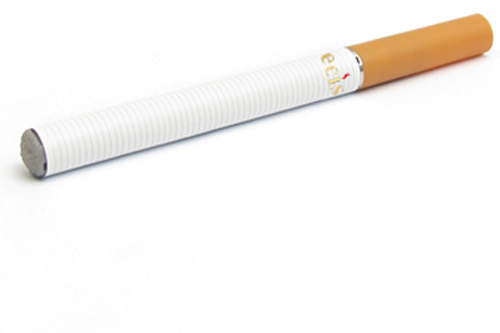HEALTH experts are demanding tighter controls on electronic cigarettes amid fears customers could be exposed to poisonous chemicals
The nicotine vapour inhaler devices are not subject regulation, and fears are growing that people could be subjected to “unclean” and “unsafe” products.
The devices hit the headlines earlier this year when it emerged Standard Life had banned its employees from smoking e-cigs at their desks.
ASH Scotland warned evidence on e-cigs was “limited”.
Many of the e-cigs brands readily available in the UK are imported without control and inspection from other countries, including China.
E-cigs do not contain tobacco and therefore are not regulated by Tobacco Product Regulations, they are also not classed as medical devices so can not be regulated in the same way as other nicotine replacement products.
The devices, which can be charged through a computer USB port, were invented by a Chinese pharmacist in 2004.
Prof John Britton, chair of the Royal College of Physicians Tobacco Advisory Group, said that regulating e-cigarettes would ensure a “guaranteed standard” for consumers was met.
He said: “Electronic cigarettes have the potential to save thousands of lives, but the fact that they are unregulated is bad as it leaves people open to using unclean and unsafe products.
“Electronic cigarettes can not be seen as being as safe as other regulated nicotine replacement therapies which meet pharmaceutical standards, these products are tested and have additives in them that we know to be safe – e-cigarettes don’t have this.
“The concept of nicotine replacement is powerful and good, but e-cigarettes are really testing this system – they are new and they are unregulated. Regulation would be useful and it would be nice to clean up the loopholes.
“At the moment electronic cigarettes may list the contents on the side of the packet, but there is no way of proving that this is the true content as there is no regulation.
“Electronic cigarettes are probably positive and if everyone switched to e-cigarettes it could potentially save millions of lives, but regulation would certainly be useful at this time,” he added.
A lack of regulation has led several countries, including Canada, Australia, and Singapore to ban the products because of fears over possible side-effects.
Jean King, Cancer Research UK’s director of tobacco control, warned that e-cigarettes do not have the same safety standards as some other nicotine containing products.
She added: “E-cigarettes are unlicensed products. This means there are no national safety standards or controls as to how they are sold.
“Also, little is known about their ingredients or the reliability of nicotine dosage. The Medicines and Healthcare Products Regulatory Agency (MHRA) is considering whether to regulate e-cigarettes and other new products that contain nicotine. At least until the MHRA reports back, Cancer Research UK does not recommend the use of e-cigarettes.”
SkyCig is the largest distributor of e-cigarettes in Scotland and has around 20,000 customers. A spokeswoman from the company said it estimated it replaced around 24 million tobacco cigarettes across the UK last year.
She added: “We absolutely welcome tighter regulations on e-cigarette products. It will help the industry grow to its potential by only allowing the best products to be distributed.
“Our products have been evaluated by the Edinburgh Scientific Services and we are also working with hire quality standard associations which we cannot disclose at the time.”
A typical electronic cigarette contains a nicotine cartridge, a vaporiser, with electronic circuitry and sensors and a battery.
Depending on the brand a cartridge may contain between 0-16mg of nicotine. The cartridge may contain additional chemicals, including propylene glycol, water and various flavourings.
On inhalation the cartridge is heated and a fine mist containing approximately 20 ingredients is produced. This mist is absorbed into the lungs, although some odourless vapour is released into the air as the smoker exhales.
Anti-tobacco group, ASH Scotland, warned that the lack of safety information on the cigarettes was a “concern”.
Chief Executive, Sheila Duffy, said: “Evidence on the safety of e-cigarettes is limited and existing regulation of the product isn’t consistent, which concerns us. We’re awaiting a the results of research from the Medicines and Healthcare products Regulatory Agency in Spring 2013, which will give more clarity on the harmfulness and efficacy of this product.
“Even more concerning, however, is that e-cigarettes also look like real cigarettes and are able to be used in many places where smoking is banned. Tobacco is not a normal product – it kills half of its consumers if used as intended. As a society we have a responsibility to protect young people by moving away from giving the impression that smoking is a desirable thing to do.”


